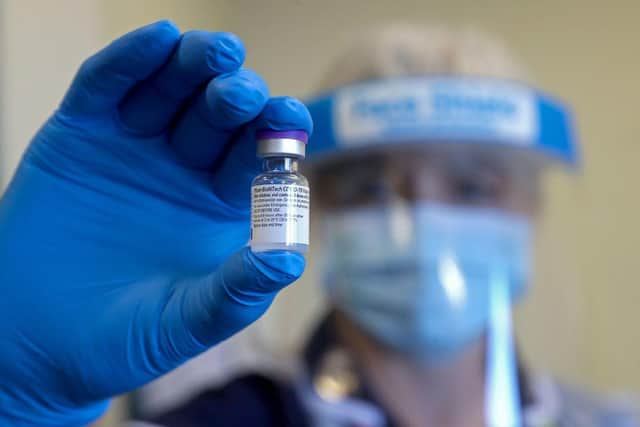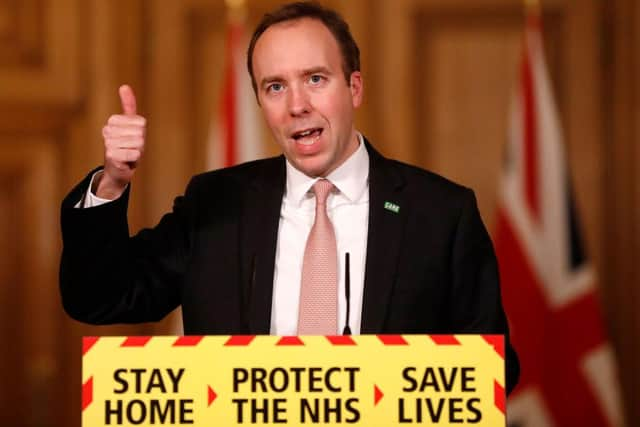How long does the Covid vaccine last? How long antibodies provide protection, and why you may need more vaccinations
Designed to allow a person to develop the ability to fight an illness without them having to contract it first, vaccines are injected into the body where they enter cells and tell them to create antibodies.
These proteins can then be replicated by the immune system should a virus – like Covid-19 – enter a person’s system in the future, and can fight off future infections.
Advertisement
Hide AdAdvertisement
Hide AdThere are currently three vaccines against coronavirus approved for use in the UK, but just how effective are they, and how long might you be protected from reinfection after inoculation?


Here is everything you need to know about them.
How long could the vaccines last?
It's still not 100 per cent known how long the vaccines remain effective, and questions need to be answered about how much protection coronavirus vaccines will afford, a public health expert has said.


On 10 January, Professor Devi Sridhar, chair of public health at Edinburgh University, told Times Radio it was not yet clear how long immunity lasts for, and “to get to some sort of true herd immunity, you’re looking at [vaccinating] 80-90% of the population, which even with our current roll-out would take you into next autumn.
“We need to make sure at that point, the people who have been vaccinated now still have immunity,” she added. “We have to continue roll-out, keep saving lives through protecting vulnerable people with that.
But she said the strategy of relying solely on the vaccination of the most vulnerable groups is “highly, highly risky”, especially “with all the new variants and mutations.”
Health Secretary Matt Hancock told MPs on 7 January that people may need to have a coronavirus vaccine every six months, but said he believed England’s third national lockdown would be the last that was required because of the vaccines.
“There is absolutely no doubt that vaccines and testing will still be a feature next year,” he told the Health and Social Care Committee.
“I anticipate we will probably need to revaccinate because we don’t know the longevity of the protection from these vaccines. We don’t know how frequently it will be, but it might need to be every six months.”
Advertisement
Hide AdAdvertisement
Hide AdThe Health Secretary also told Sky News it was “highly likely” there will be a “dual-vaccination programme” of flu and Covid-19 for the foreseeable future.
What does the science say?
Reports that contracting the virus gives around five months of immunity may give us some indication of how long such vaccines could remain effective within a person.
The first report from Public Health England’s (PHE) Siren study found that antibodies from past infection provide 83% protection against reinfection for at least five months.
It’s worth remembering that these findings were found in people who had been Covid positive in the past – study leaders say the report provides no evidence towards the immune responses from coronavirus vaccines, and no conclusions on their effectiveness should be drawn.
Professor Susan Hopkins, senior medical adviser at PHE said: “This study has given us the clearest picture to date of the nature of antibody protection against Covid-19 but it is critical people do not misunderstand these early findings.
“We now know that most of those who have had the virus, and developed antibodies, are protected from reinfection, but this is not total and we do not yet know how long protection lasts.
Does the vaccine stop a person passing on the virus to others?
Experts have warned that a small number of those with immunity may still be able carry the virus in their nose and throat and therefore have a risk of transmitting it to others.
Advertisement
Hide AdAdvertisement
Hide Ad“Even if you believe you already had the disease and are protected, you can be reassured it is highly unlikely you will develop severe infections, but there is still a risk that you could acquire an infection and transmit to others,” said Prof Hopkins.
Safeguarding Minister Victoria Atkins reinforced that message, saying that even if people have some immunity to Covid-19 after contracting the virus, they still need to follow the rules.
Asked on Sky News on Thursday (14 January) about the PHE report, she said: “The message from the Government… remains the same: all of the measures that we have… all the lockdown measures that we are currently in, they all still apply.
“This vaccination news, or indeed the news that if you have already had Covid you might have some immunity, that’s great news for the future but we all must play our part in sticking to the rules so we can… get back to some form of normality.”

